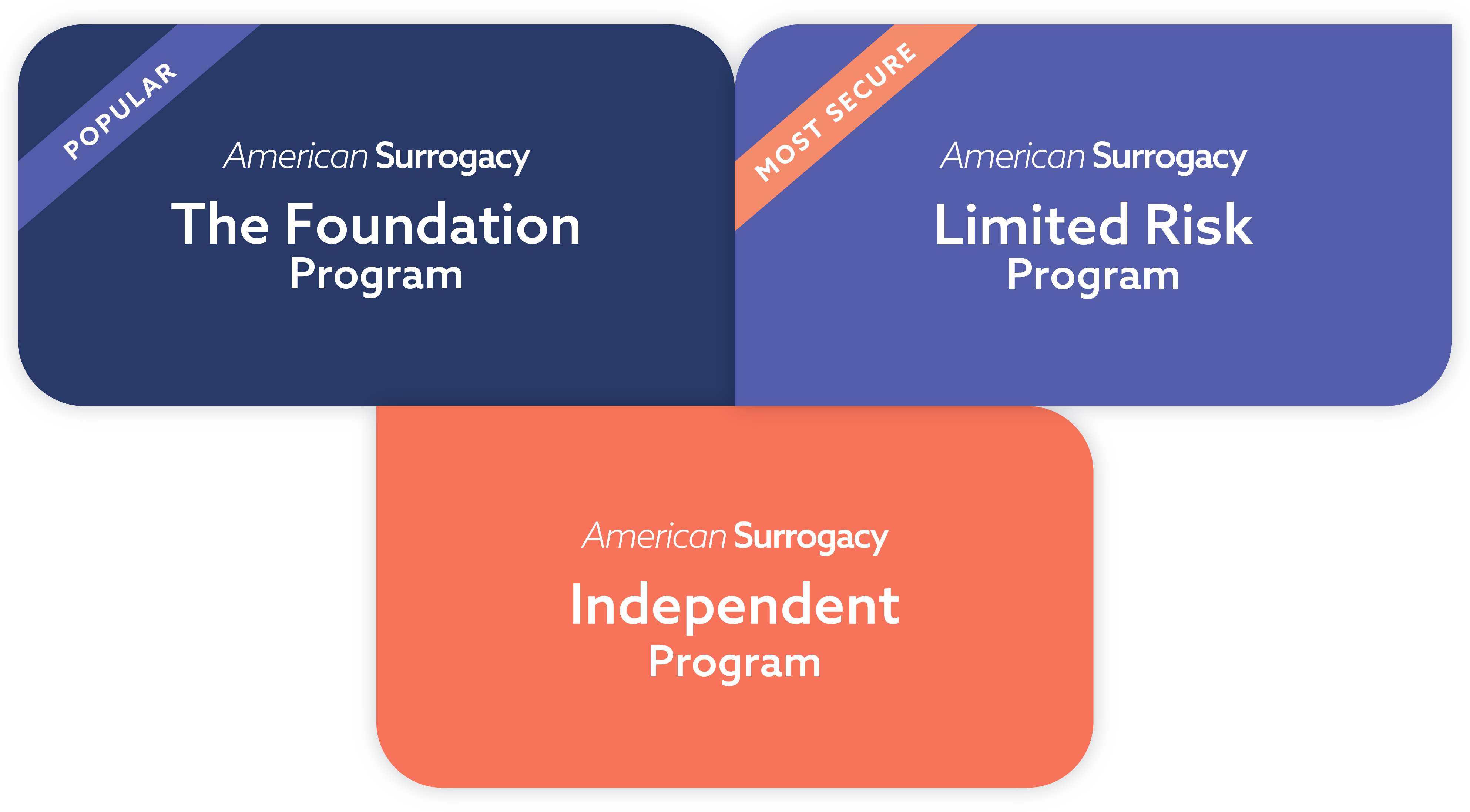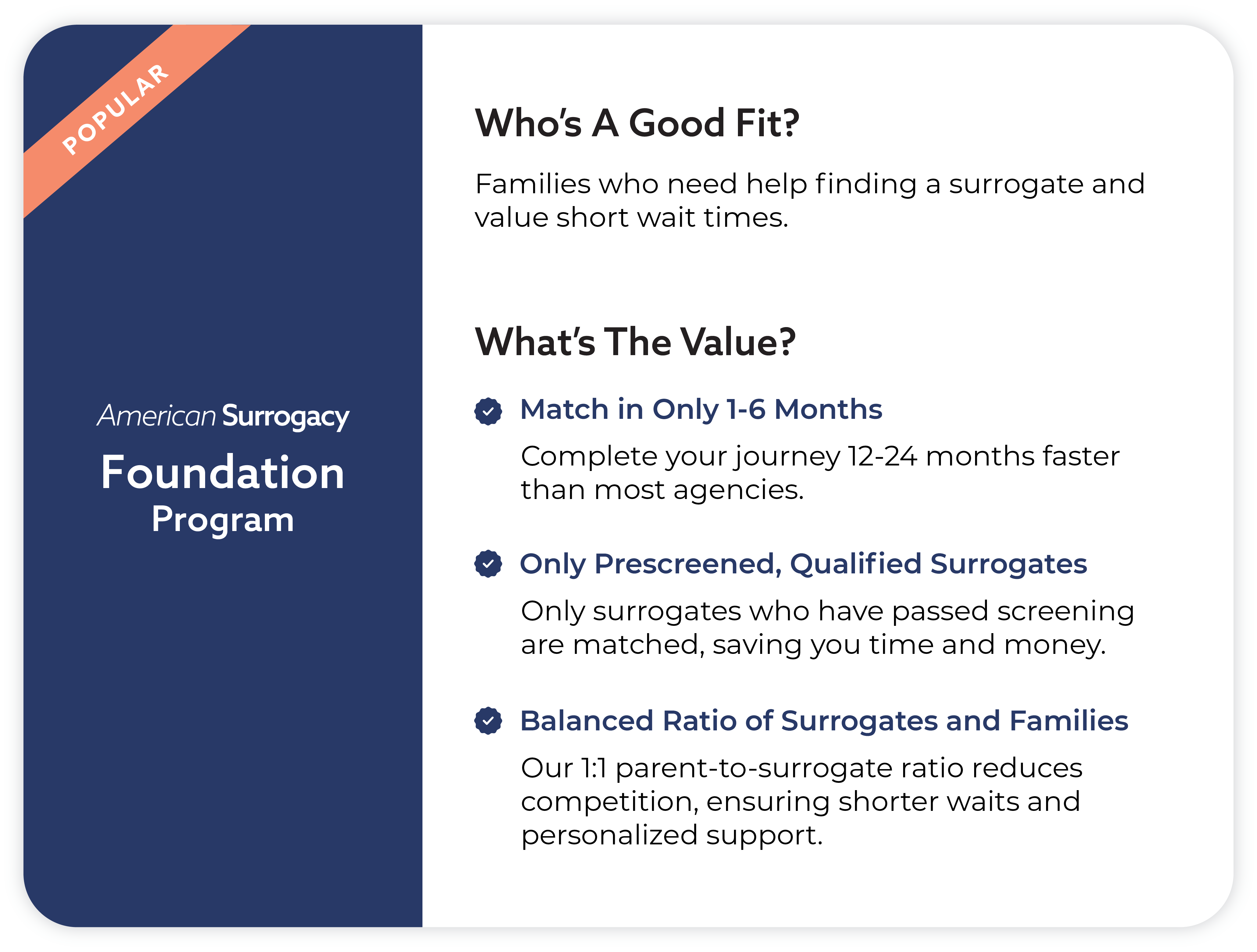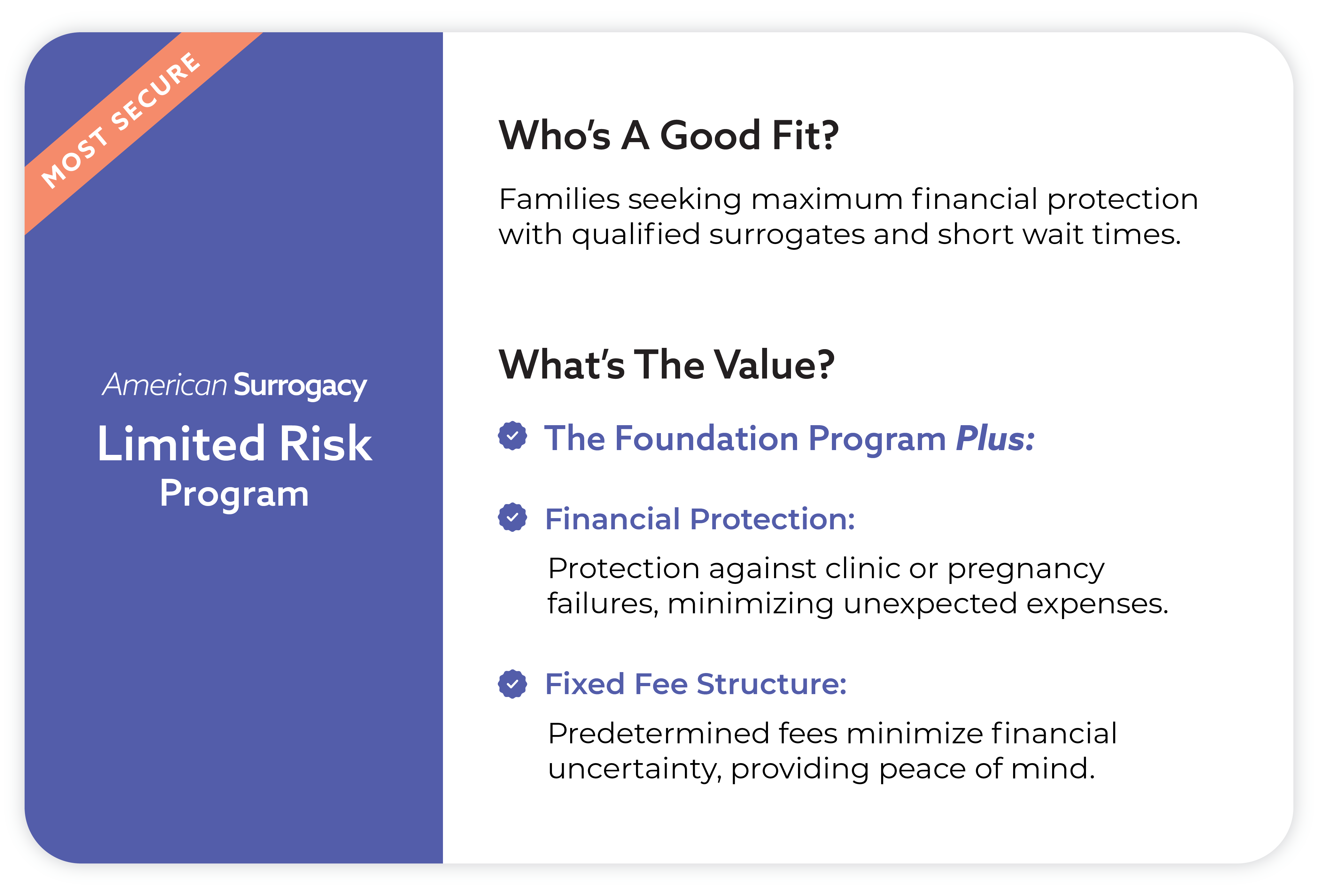Surrogacy has helped thousands of Washington families welcome their children into the world — and you could be next. Washington surrogacy laws are some of the most progressive in the country, making it a supportive place for intended parents and surrogates alike.
When you work with American Surrogacy, you're not only getting a guide through the legal process — you're also gaining a team that deeply understands the emotional, financial, and logistical journey ahead. From matching with a surrogate to finalizing parentage, we’re here to make your dream of parenthood possible.
Washington Surrogacy Laws
Surrogacy is fully legal in Washington. Thanks to RCW 26.26A, the state supports both gestational and traditional surrogacy, offering a clear legal pathway for intended parents to secure their parental rights.
Key protections include:
- Enforceable surrogacy contracts
- Pre-birth parentage orders
- Inclusive access for LGBTQ+ families
- Surrogate compensation permitted with appropriate legal procedures
RCW 26.26A Washington Parentage Act
Is Paid Surrogacy Legal in Washington?
Yes, paid surrogacy is legal in Washington.
However, Washington requires that surrogacy agreements include specific provisions about compensation, and they must meet the requirements of the Parentage Act. All parties must be represented by independent legal counsel, and the contract must be validated before any medical procedures occur.
With American Surrogacy, you’re never limited to just your state. We can connect you with surrogates or families across the U.S., ensuring a legal, ethical, and smooth journey — wherever it begins.
Learn more about surrogate compensation.
Are Surrogacy Contracts Enforceable in Washington?
Yes. Surrogacy contracts are enforceable under Washington’s RCW 26.26A law. The contract must:
- Be in writing
- Be signed before any medical procedures
- Include compensation terms
- Be reviewed by separate attorneys for each party
Our agency helps you get your surrogacy contract drafted and reviewed in full compliance with state law.
What Should Be Included in a Surrogacy Contract?
A strong surrogacy contract should cover:
Compensation for the surrogate, reimbursements and handling of unexpected costs. Who makes decisions about embryo transfers, selective reduction, pregnancy termination or cesarean delivery? Wellness expectations, travel restrictions and communication preferences. How and when the intended parents will be recognized as the child’s legal guardians. Clear methods for resolving disagreements—without jeopardizing the journey. What happens if one party needs to end the agreement early?
American Surrogacy works with experienced legal professionals to ensure every detail is covered.
When Do I Need a Surrogacy Contract in Washington?
You’ll need a finalized contract before any embryo transfer takes place. This ensures everyone is legally protected and in agreement before the medical process begins.
Learn more about the surrogacy timeline.
How Will American Surrogacy Support You During the Contract Stage?
We ensure your contract meets all Washington legal requirements and represents your best interests.
Explaining complex legal language in plain terms Assisting with contract negotiations and feedback loops Coordinating timelines between medical and legal milestones Ensuring all documentation is signed and submitted on time Connecting you with a surrogacy attorney near you How We Help You
You’ll never face a legal form alone — we’ll be with you every step of the way.
LGBTQ+ Surrogacy Laws in Washington
Washington is one of the most inclusive states for LGBTQ+ families. Same-sex couples and LGBTQ+ individuals have full access to:
- Gestational surrogacy
- Pre-birth orders, regardless of marital status
- Birth certificates listing both parents
- Learn more about our LGBTQ+ surrogacy program.
Abortion Laws in Washington and Termination Clauses
Abortion is legal in Washington, and the law protects the right to terminate a pregnancy before viability.
Surrogacy contracts in Washington must include termination and selective reduction provisions. This ensures all parties are aligned on these decisions from the outset — legally and ethically.
If Washington’s laws ever change or don’t align with your preferences, American Surrogacy can match you with surrogates in other supportive states.
Surrogacy and Parentage Orders in Washington
Washington allows pre-birth parentage orders, ensuring a smooth transition of legal rights after the child is born. Requirements include:
- A valid surrogacy contract
- Court approval of the agreement
- Independent legal counse
Both married and unmarried couples — including LGBTQ+ individuals — can establish parentage through this process.
How to Get a Pre-Birth Order in Washington
Pre-birth orders typically require:
- Filing through your attorney after the contract is signed
- No court appearance (in most cases)
- The birth certificate issued with intended parents' names within days of delivery
International Surrogacy Laws in Washington
Washington does not have specific laws about international surrogacy. However, international intended parents can work with American Surrogacy to build their families here with full legal protections and guidance.
The Role of a Surrogacy Attorney in Washington
A surrogacy attorney in Washington will:
- Draft and review your surrogacy contract
- File for parentage orders
- Ensure compliance with state law
Need help finding a surrogacy attorney? Contact us today — we’ll connect you with experienced professionals in Washington.
How Much Does a Surrogacy Lawyer Cost?
Costs vary, but most legal fees in Washington range from $4,000–$8,000. At American Surrogacy, legal fees are included in your program costs, so you’ll never face unexpected expenses.
Find a Surrogacy Attorney Near You
Here are a few surrogacy attorneys in Washington:
Dimitra S. Scott chairs the Divorce & Family Law and Adoption & Assisted Reproduction practice groups at Beresford Booth PLLC. She provides legal guidance for family formation, including adoption and assisted reproduction technology (ART), and is a fellow of the Academy of Adoption & Assisted Reproduction Attorneys (AAAA).
Raegen N. Rasnic is a Principal attorney at Skellenger Bender, P.S., focusing on family law, including adoption and assisted reproductive technology (ART) law. She is a nationally recognized practitioner in ART law and a fellow of the Academy of Adoption & Assisted Reproduction Attorneys (AAAA).
Mark M. Demaray has dedicated his career to building families through adoption and assisted reproduction for over 30 years. He has a leading national practice and has provided assistance in over 6,000 adoptions and assisted reproduction matters for families in Washington and throughout the country.
Explore Our Surrogacy Programs in Washington

We offer three core programs designed to meet your unique needs:
Independent Program:
Foundation Program:

Limited Risk Program:

FAQ: Legal Aspects of Surrogacy in Washington
Are insurance companies required to cover IVF in Washington?
No. Washington does not mandate private insurers to cover IVF.
States that do include: New Jersey, Illinois, Massachusetts, and Connecticut.
Is an embryo considered a person in Washington?
No. Embryos are not recognized as legal persons in Washington. They are considered property and handled accordingly in surrogacy agreements.
Is traditional surrogacy legal in Washington?
Yes, but it's subject to the same legal contract requirements as gestational surrogacy and must be carefully navigated due to potential parental rights complexities.
Do sperm and egg donors have parental rights?
No. Washington law states that gamete donors do not have parental rights if there is a written agreement in place.
Is there an IVF Tax Credit?
No, Washington currently does not offer a state-level IVF tax credit.
Begin Your Surrogacy Journey in Washington
At American Surrogacy, we know that surrogacy is more than a process — it’s a path to family, filled with legal steps, emotional decisions, and life-changing milestones. And we’re here to help you navigate every one of them.
Start today and you could be matched with a fully screened surrogate in as little as 1 - 4 months.
This article is not intended to be and should not be taken as legal advice. Surrogacy laws in Washington are always subject to change, so please speak with a local Washington surrogacy attorney for more information about the current state of surrogacy in Washington.